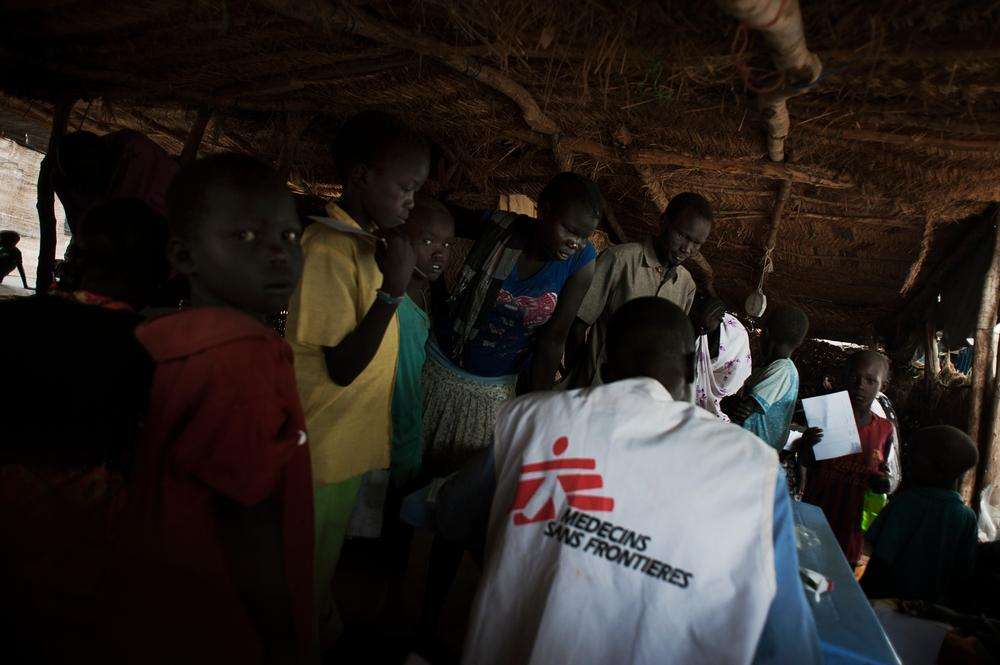JUBA, SOUTH SUDAN/NEW YORK—A malaria epidemic in South Sudan has gone neglected due to the political crisis raging throughout the country, leading to insufficient distribution of antimalarial drugs in many peripheral health centers and an increase in the number of severe life-threatening cases of the disease, said the medical humanitarian organization Doctors Without Borders/Médecins Sans Frontières Thursday.
MSF staff in health facilities in Aweil and Pamat, Northern Bahr el Ghazal state; Gogrial in Warrap state; Yambio in Western Equatoria state; and Agok in Abyei territory have treated nearly 60,000 patients since the beginning of the year. More than 10 percent of these patients have been hospitalized. This is more than triple the number of patients seen during the same period last year. In September alone, MSF treated more than 10,000 cases of malaria in the west of the country.
Unusually prolonged and heavy rainfall in many areas and a lack of available treatments in some peripheral health centers mean that many patients have to travel many hours or even days to reach MSF health structures for treatment, MSF said.
"Some patients die when they could have been easily saved if they had had access to treatment earlier," said Renee Madrolle, MSF project coordinator in Aweil state hospital, which is the reference hospital of Northern Bahr el Ghazal. "Malaria is the first cause of mortality in Aweil during the rainy season, and children are the most affected."
As a result of the political crisis and structural problems in the country’s supply chain, the medicines in Juba were not delivered at the start of the rainy season during the first spike in malaria cases at the end of May and beginning of June. This meant there were not enough drugs available for a comprehensive distribution in peripheral health centers and only a few facilities received them. As a result, there are now large areas affected by malaria where people lack access to treatment.
In response to these needs, MSF urgently brought extra supplies of malaria rapid diagnostic tests and malaria treatments to most of the MSF projects affected by the malaria outbreak.
In Gogrial health center, MSF has set up a dedicated malaria section to cope with the overwhelming number of patients. In June, MSF also opened activities in the outpatient department of Aweil hospital to detect infected people and provide treatment. The most severe cases are hospitalized in a specific 35-bed treatment unit set up by MSF in July inside the hospital. Today this capacity is insufficient.
In September, 71 percent of cases in the pediatric department in Aweil hospital were malaria. MSF also regularly organizes mobile clinics in the most remote areas to reduce the number of severe cases coming to the hospital due to late treatment.
"MSF cannot cover all the needs in Northern Bahr el Ghazal, Warrap, and Western Equatoria states and Abyei territory," said Madrolle. "More international health actors must be mobilized along with the Ministry of Health to provide access to antimalarial treatment to the population.”
MSF currently has 25 projects in nine of South Sudan's ten states. It employs 3,300 national staff and 350 international staff to carry out its mission in the country.




